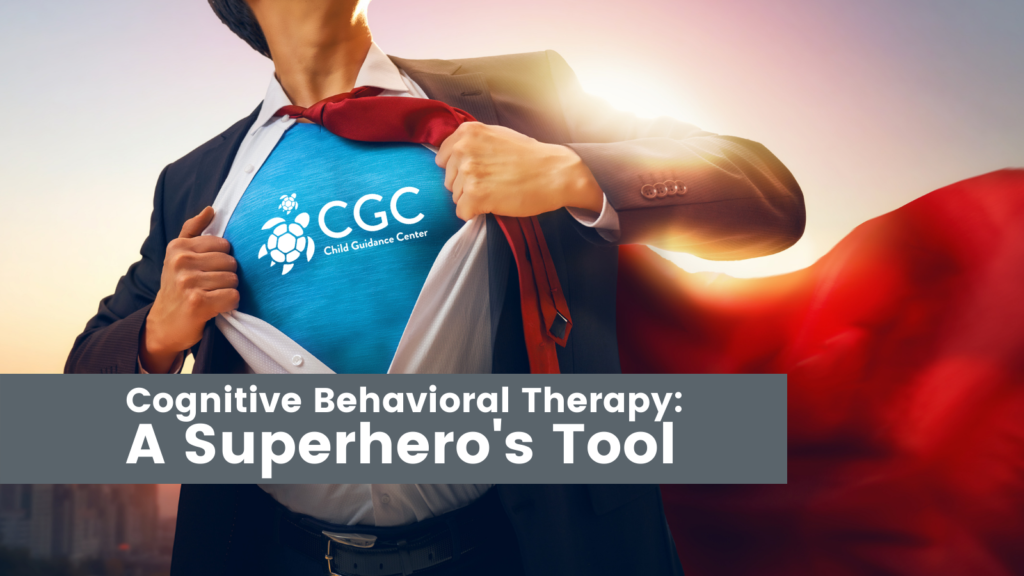
Are you a parent of a child having mental health issues? Do you wish there was a way for you to help your child with their struggles? Many parents today are concerned about their child’s mental health struggles, and for good reason. Students in Jacksonville report depression at high rates—and 1 in 5 students report they have seriously considered suicide. On top of that, the year 2020 saw a 300% increase in emergency room behavioral health visits in Northeast Florida.
The need for mental health resources for children and youth is not a problem unique to Jacksonville and its surrounding communities. Across the United States, 1 in 6 youth ages 6-17 experience a mental health disorder each year. However, the mental health crisis sparked by the coronavirus pandemic has disproportionately affected children. During difficult times, parents can often feel helpless. Sometimes, parents are not aware of the resources available to their children, or are concerned about how much it is going to cost for those services. However, there is help out there for you and your children.
Parents, do you wish there was a superhero that could come to the rescue of your child and just zap their mental health problems away? If so, I have great news for you. Superheroes are not just military members, first responders, nurses, doctors, and teachers. (Although, the people serving in those roles are indeed superheroes and we should thank every one of them for their service.) However, there is another type of superhero that isn’t recognized as often as it should be.
Who am I referring to? Well considering that I work for CGC as a Full Service Schools therapist, I am of course referring to professional mental health therapists and social workers! What makes us superheroes? In the same way a nurse or doctor helps your child with medical issues and can save lives, we can help your child with mental health issues and yes, do save lives sometimes as well.
Let me tell you about our client, Sally (not her real name). Sally came to me with depression, thoughts about suicide, having made two suicide attempts in the last several months, and having anxiety as well. She had a lot she was trying to handle, as you can imagine. The good news is that Sally wanted to get better, and both she and her parents fully participated in therapy. It took a lot of work from Sally and her parents, but eventually, she was successfully discharged from therapy. At that point, she was no longer having thoughts about suicide, had no plans to ever make another suicide attempt, was no longer experiencing symptoms of either depression or anxiety. Had Sally not gotten the help she needed, there is a strong possibility that she would have attempted suicide again.
So how did therapy help Sally, and how can it help your child with their mental health struggles? Well, that’s where the good news comes in.
First, let’s look at the concerns you have about how much these mental health services are going to cost. The answer may well be that these services won’t cost you a thing. Does your child attend a Duval County Public School? If so, consider the Full Service Schools program. This program provides in-school therapy with a professional mental health therapist or social worker at no cost to you. All you need to do is speak with your child’s school guidance counselor and request to have your child enrolled in the Full Service Schools program. It is that easy to get started. If your child does not attend a Duval County Public School, then there are other outpatient options for your child to get the help they need, especially if you have insurance that covers mental health services. Please feel free to reach out to us for more information through the Request Services contact form on our website.
Although, no one can simply zap away mental health problems, therapists do have a Superhero-like weapon to help your child with many mental health struggles. It’s what I used to help Sally, and it’s a technique that has helped many clients on the road to feeling better: Cognitive Behavioral Therapy (CBT). CBT is a strong, evidence-based, therapeutic approach for a variety of mental health problems and is an effective treatment option for depression, anxiety, and many other mental health issues.
The way CBT works is through the therapist and client identifying the pervasive negative thoughts that are accompanying the client’s mental health problems. The goal is to teach the client how to not just accept those thoughts, but then to challenge that thinking and learn to replace those negative thoughts with positive thoughts instead. It’s natural for us to have negative thoughts and it never even cross our minds that those thoughts might not be true. This is why CBT is so effective. Once the client begins challenging negative thoughts—recognizing that they are not true—and practicing replacing negative thinking with positive thinking, it has a major impact on their mental health. For many clients, learning to use CBT successfully will help diminish, or alleviate entirely, their symptoms of depression or anxiety.
While most parents have never heard of Cognitive Behavioral Therapy, part of the schooling and training required to become a therapist or social worker includes learning about CBT and many other therapy techniques. So, although you may not have heard of CBT, rest assured that we superheroes know what it is and how to use it—and it may be a great option to help your child.